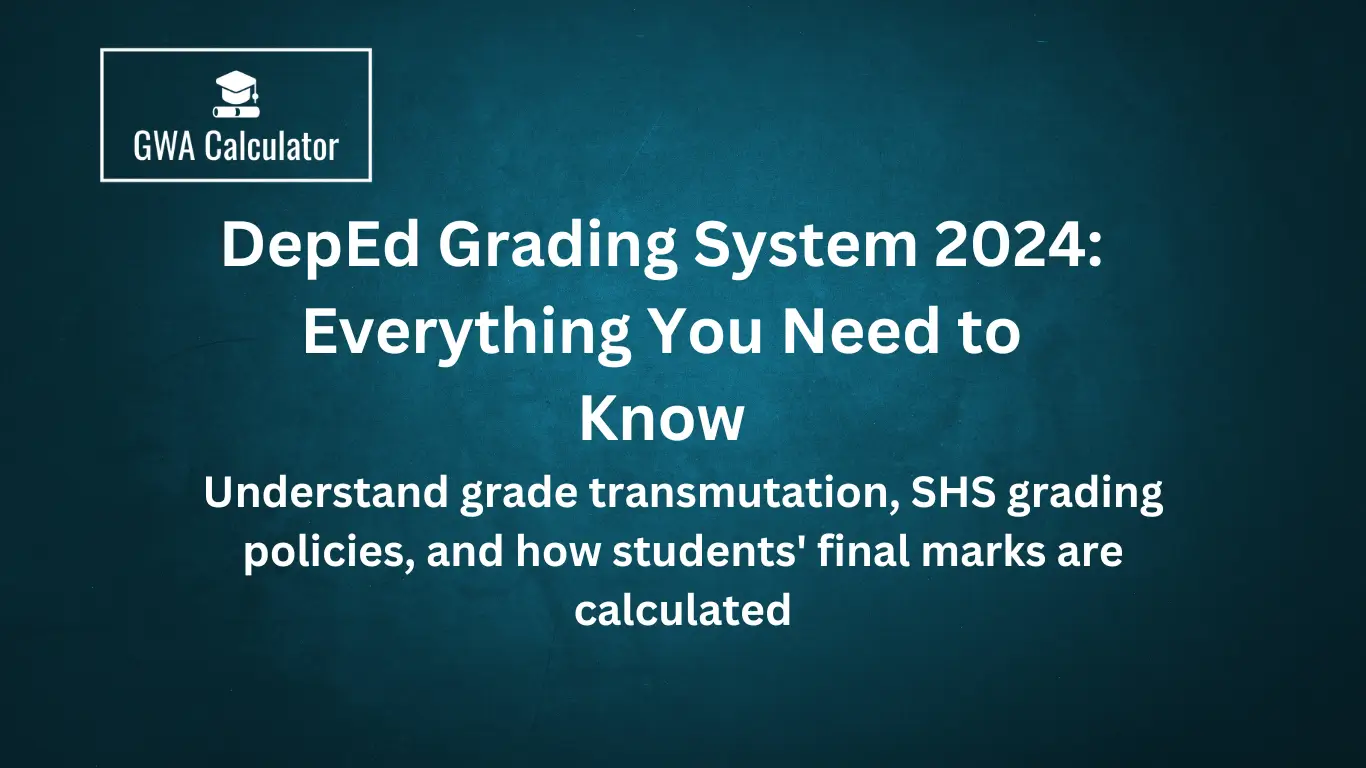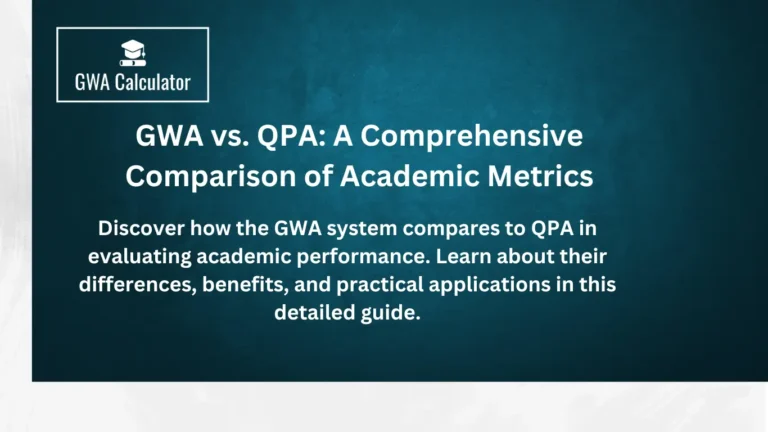The DepEd Grading System: A Comprehensive Guide for Students and Educators in the Philippines
Understanding the Department of Education (DepEd) grading system in the Philippines is essential for both students and educators, especially as they navigate the academic landscape in high school and Senior High School (SHS). The system is designed to assess students’ performance based on a comprehensive set of standards that foster learning and development.
In this article, we’ll dive deep into the DepEd grading system, how grades are transmuted, the importance of transmuted grades, and how students and parents can interpret these results.
What is the DepEd Grading System?
The DepEd grading system is used across all public and some private schools in the Philippines to evaluate students’ academic performance. The system is designed to be transparent, objective, and equitable, ensuring that students’ grades reflect their actual learning progress. The grading system is standards-based, which means that it assesses students based on their mastery of specific competencies.
Grades are divided into four quarters throughout the school year. Each subject’s final grade is determined by calculating the weighted average of the student’s grades across all grading periods.
Initial Grades and Transmuted Grades: What’s the Difference?
The initial grades represent the raw scores a student receives in assessments such as quizzes, performance tasks, and exams. However, these initial grades go through a process known as grade transmutation to standardize the results across all students.
The transmuted grades are what appear on the student’s report card and are the final grades after the transmutation process. Transmutation ensures that grades are fair, especially in cases where students perform poorly in assessments but have demonstrated effort and improvement throughout the year.
DepEd Transmutation Table: How Does It Work?
The DepEd transmutation table plays a key role in converting raw scores into final grades. The table adjusts the scores to align with the passing grade, ensuring that students receive grades that reflect not only their performance but also the overall difficulty of the assessment.
For instance, DepEd uses a transmutation formula for computing final grades. The formula is designed to make grades more equitable across different performance levels, and it’s particularly useful in cases where students’ raw scores do not accurately reflect their learning progress.
Here’s an example of how the DepEd transmutation table works:
| Raw Score | Transmuted Grade |
|---|---|
| 100-90 | 100 |
| 89-85 | 95 |
| 84-80 | 90 |
| 79-75 | 85 |
| 74-70 | 80 |
| 69-65 | 75 |
| Below 65 | Below Passing Grade |
This table helps ensure that students who may have struggled with assessments but improved over time still get a fair final grade.
DepEd Grading System for Senior High School (SHS)
In Senior High School (SHS), the grading system in the Philippines follows a similar structure but includes specialized subjects based on a student’s chosen track (e.g., Academic, Technical-Vocational-Livelihood). SHS students are graded based on both core subjects and track-specific subjects, with each having its own set of competencies.
The grading components for SHS subjects include:
- Written Work: Quizzes, essays, and other written assessments.
- Performance Tasks: Practical work, group projects, and oral assessments.
- Quarterly Examinations: End-of-quarter exams that test the student’s understanding of the subject.
The formula for computing grades in SHS is as follows:
- Written Work: 25-40% (depending on the subject)
- Performance Tasks: 40-60%
- Quarterly Examinations: 20-30%
The percentage weight varies based on the subject (e.g., science subjects may allocate more weight to performance tasks due to the practical nature of the course). The final grade is then transmuted using the DepEd transmutation table.
DepEd Grades Transmutation: Why It Matters
The DepEd grades transmutation process is vital for ensuring fairness and equity in grading. It takes into account students’ overall performance, including their learning progress throughout the year. For example, if a student starts the year with low scores but shows significant improvement in later grading periods, the transmutation system helps adjust their final grades to reflect their overall progress.
This system is particularly beneficial for students who struggle with certain subjects but excel in others, as it ensures that their grades are not solely dependent on one poor performance but on their overall effort and mastery.
How Are Grades Computed in DepEd’s System?
Grades in the DepEd system are computed by taking into account the student’s performance in various assessments. Here’s a step-by-step breakdown of how grades are typically calculated:
- Initial Grades: Students receive raw scores for each assessment throughout the grading period.
- Weighted Scores: These raw scores are then weighted based on the subject’s specific grading components (e.g., Written Work, Performance Tasks, and Quarterly Examinations).
- Final Grade: The weighted scores are combined to form the initial grade.
- Transmutation: Using the DepEd transmutation table, the initial grade is adjusted to arrive at the final transmuted grade.
FAQs About the DepEd Grading System
- What is a passing grade in DepEd’s grading system?
- A final grade of 75 is considered the passing grade in DepEd’s grading system. However, the exact raw score needed to achieve this final grade depends on the subject and the difficulty of the assessments.
- What is the difference between initial and transmuted grades?
- Initial grades are the raw scores a student earns in assessments, while transmuted grades are the final grades that appear on report cards after the raw scores have been adjusted using the DepEd transmutation table.
- How are grades computed for SHS students?
- SHS students’ grades are based on a combination of written work, performance tasks, and quarterly exams, with varying weight percentages depending on the subject.
- Why is grade transmutation important?
- Grade transmutation ensures that students’ final grades are fair and reflect their overall learning, not just their performance on a single assessment.
Conclusion: Navigating the DepEd Grading System for Success
The DepEd grading system is designed to provide an accurate reflection of a student’s academic performance. Whether you’re a student, parent, or teacher, understanding the system and how grades are computed and transmuted can help in navigating the academic landscape.
For students, it’s important to focus on both written work and performance tasks throughout the year, as both contribute significantly to the final grade. Likewise, parents and teachers should encourage consistency and improvement, as the grading system rewards effort and progress over time.







